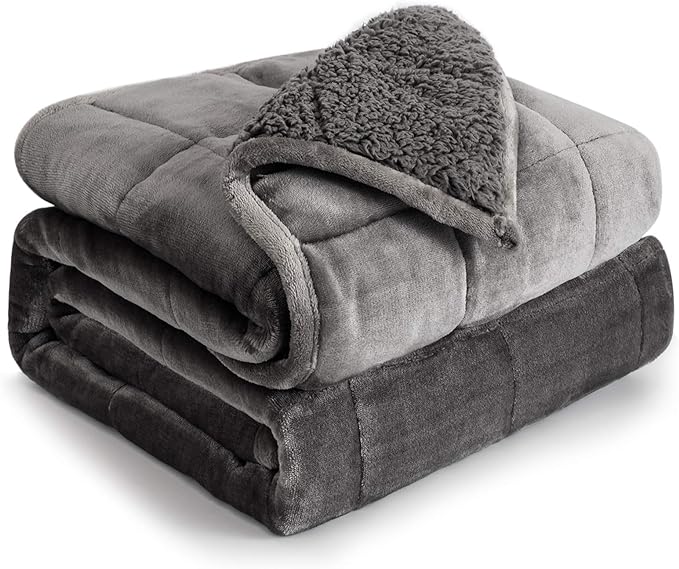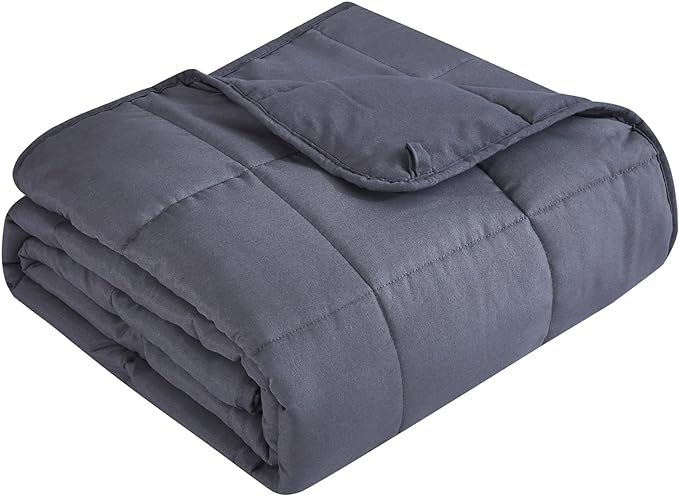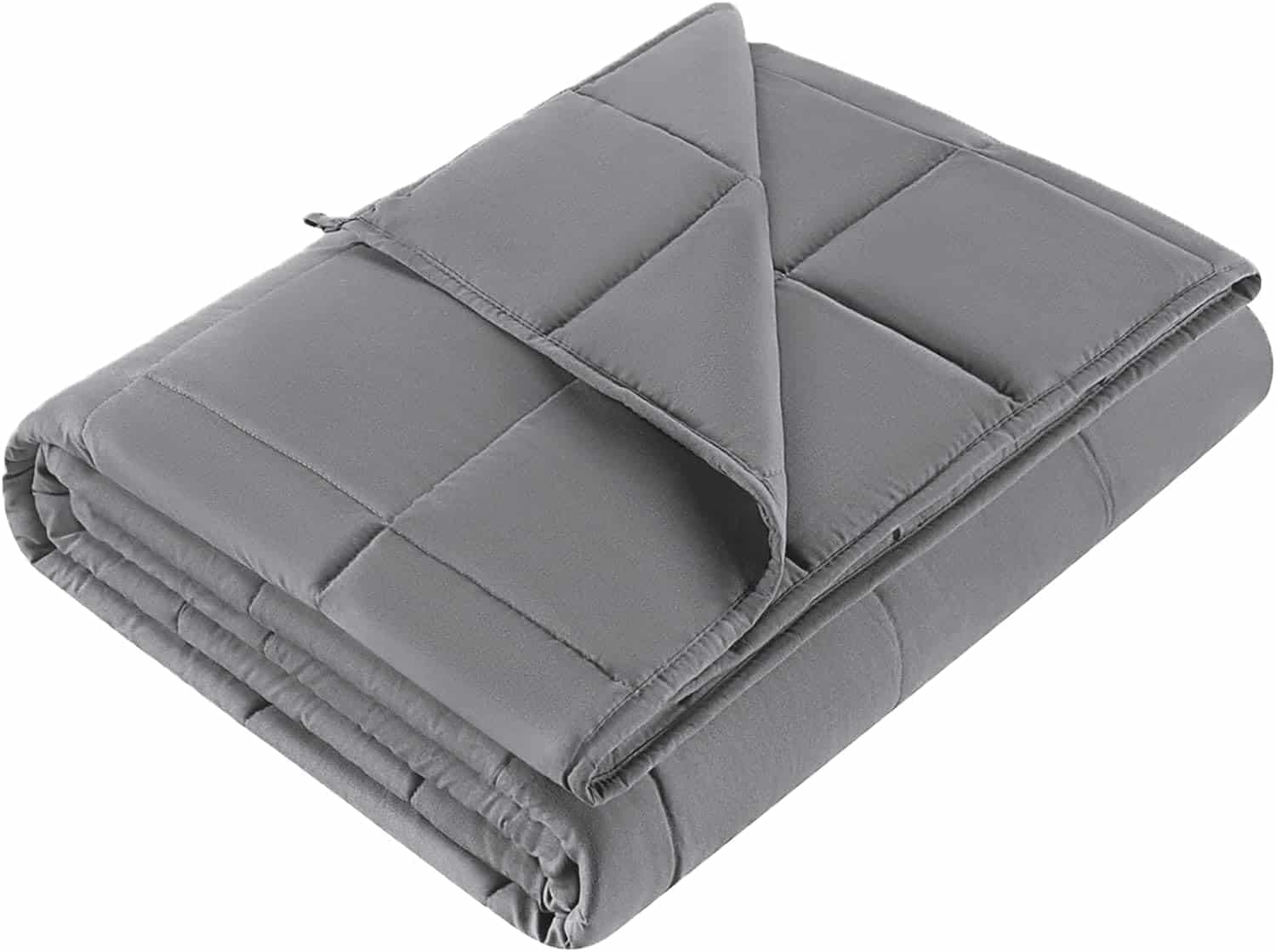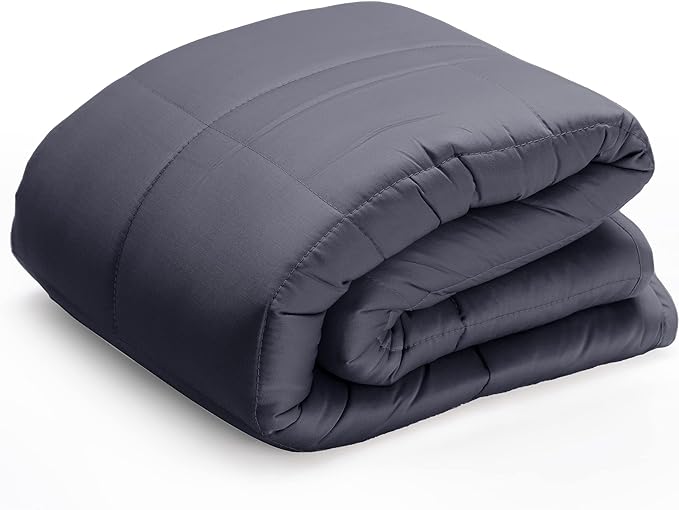
Parkinson’s disease, a progressive neurological disorder, affects millions worldwide. Characterized by tremors, rigidity, and various non-motor symptoms, it poses daily challenges. Among the innovative therapeutic approaches emerging, weighted blankets have gained attention for their potential benefits for Parkinson’s patients.
Contents
- 0.0.0.1 Understanding Parkinson’s Disease
- 0.0.0.2 The Science Behind Weighted Blankets
- 0.0.0.3 Weighted Blankets and Parkinson’s: A Therapeutic Match
- 0.0.0.4 Research and Clinical Perspectives
- 0.0.0.5 Choosing the Right Weighted Blanket
- 0.0.0.6 Patient Stories and Experiences
- 0.0.0.7 The Way Forward
- 0.0.0.8 Conclusion
- 1 Our Top 6 Picks
Understanding Parkinson’s Disease
Parkinson’s disease primarily affects motor functions due to dopamine-producing neuron loss in the brain. Symptoms include tremors, muscle stiffness, balance issues, and slowness of movement. Non-motor symptoms can include sleep disturbances, anxiety, and depression, significantly impacting the quality of life.
The Science Behind Weighted Blankets
Weighted blankets utilize deep touch pressure stimulation to mimic the sensation of being hugged. This pressure is believed to promote the release of serotonin (a mood stabilizer) and melatonin (which aids sleep), while reducing cortisol (a stress hormone). Initially used for anxiety and autism spectrum disorders, their application has expanded to other areas, including Parkinson’s disease.
Weighted Blankets and Parkinson’s: A Therapeutic Match
Improved Sleep: Sleep disorders are common in Parkinson’s patients, often exacerbating other symptoms. Weighted blankets can provide a comforting, secure sensation, potentially leading to improved sleep quality.
Reducing Anxiety and Depression: The calming effect of weighted blankets can help alleviate anxiety and depressive symptoms, offering a non-pharmacological approach to mood regulation.
Muscle Relaxation: The gentle, consistent pressure can help relieve muscle stiffness and spasms, common in Parkinson’s.
Research and Clinical Perspectives
Research on weighted blankets in Parkinson’s is in early stages. However, existing studies on their effectiveness in insomnia and anxiety suggest potential benefits. Anecdotal evidence from patients and caregivers has been positive, noting improvements in sleep and overall comfort.
Choosing the Right Weighted Blanket
Selecting a weighted blanket involves considering individual factors:
- Weight: Typically, a blanket should be around 10% of the user’s body weight. For Parkinson’s patients, this might vary based on individual tolerance and mobility.
- Material: Materials should be comfortable and breathable to prevent overheating.
- Size: The blanket should fit the bed or the user comfortably, without being overly restrictive.
Consulting healthcare providers before using weighted blankets is crucial, especially for patients with severe mobility restrictions or other medical considerations.For more information about choosing the right weighted blanket. Look at this page Choosing The Right Weighted Blanket: A Buyer’s Guide
Patient Stories and Experiences
Many Parkinson’s patients have shared positive experiences with weighted blankets. For instance, John, a 60-year-old Parkinson’s patient, reported significant reductions in nocturnal restlessness after using a weighted blanket. Similarly, Mary, a caregiver for her Parkinsonian husband, noted improvements in his sleep quality and mood since incorporating the blanket into his routine.
The Way Forward
While weighted blankets are not a cure for Parkinson’s, they offer a complementary tool to enhance life quality. They represent a simple, yet effective approach to addressing some of the symptomatic challenges of the disease.
Conclusion
The journey with Parkinson’s disease is complex and multifaceted. Weighted blankets, with their unique ability to provide comfort and relief, emerge as a promising tool in the quest to improve the lives of those affected by this condition. As research continues to explore their full potential, these blankets offer hope and comfort, one night at a time.
Our Top 6 Picks
Interested in our top 6 weighted blankets? then look further on the next page.
# | Product | Title | Rating | |
1 | 4.5/5 | |||
2 | 4.5/5 | |||
3 | 4/5 | |||
4 | 4/5 | |||
5 | 4/5 | |||
6 | 4.5/5 |






